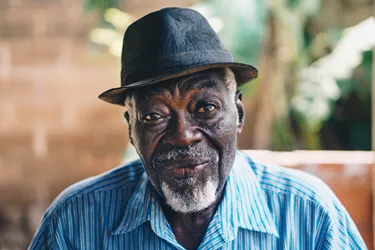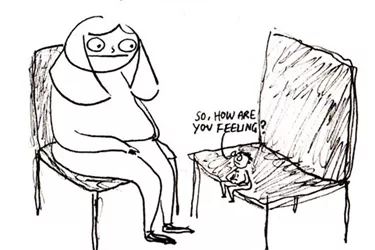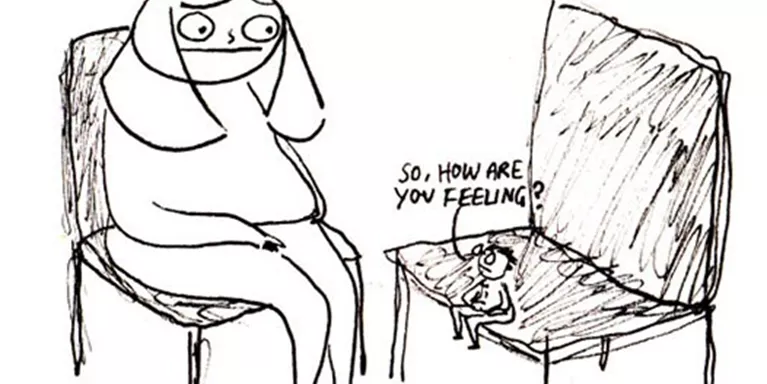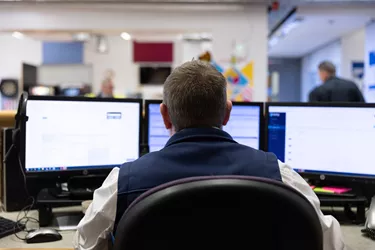CBT and me
Talking therapies like CBT (cognitive behavioural therapy) and counselling can be really effective for depression and anxiety. In 2017, nearly a million people got talking therapy through the Improving Access to Psychological Therapy (IAPT) programme. But as Sophie's experience shows, more needs to be done before everyone who needs it gets the right therapy at the right time.
During the time of writing, Sophie was a student and worked with Student Minds and Samaritans. She was also a media volunteer at Time to Change, a national campaign to end the stigma surrounding mental illness. Time to Change closed on 31st March 2021.
You can follow Sophie on Twitter at @petalsofperfect.
My anxiety and depression began when I was in school. I was always a worrier and would often overthink a lot of unnecessary things. But it was only once I started university three years ago that I felt I needed help.
University was a massive change and a big jump from school. It left me feeling very vulnerable and unhappy. Despite getting good grades, I often put myself under a lot of pressure to succeed, and my mental health got worse.
It was when I was on holiday with my two best friends that I decided to open up about how I felt. After a long chat, I resolved to bite the bullet and see my doctor. I wrote down a long list of everything I had been worrying about over the years and simply handed it over to her. At first, I was just told to read self-help leaflets, and I thought I could help myself by talking to friends and family and just ‘think positively’. But, if you have a mental health problem, you’ll know it doesn’t work like that.
“You wake up fighting a daily battle. Your brain is telling you you’re not good enough. You feel exhausted all the time.”
After a year, I went back to my GP, and this time she recommended that I self-refer for cognitive behavioural therapy (CBT). After a couple of weeks, I finally filled out the online form to get on the waiting list and the next day received a call about booking a phone assessment.
During my assessment, I was asked to explain how I felt and what I was struggling with. I was prompted with questions such as, “Do you feel like hurting yourself?”, “Do you feel that you are at risk?”. I was told I had social anxiety and depression, as well as dermatillomania when you compulsively pick at your skin. This diagnosis felt more validated, as it was specific to how I felt. I was then offered up to 12 weekly CBT sessions.
During the next five months, while I waited for therapy, I experienced a lot of personal problems which left me feeling desperate. I called and emailed Samaritans, and they helped me feel less alone and gave me a ‘coping plan’ while I was waiting for therapy. I ended up going back to my GP a handful of times, begging her to contact the CBT service. After being deemed a priority and endless letters from my doctor, I finally got the call to say that my wait was over.
After seven months, I finally had my first date for CBT! I was very apprehensive and didn’t know what to expect, but I tried my best to go in with an open mind. In my first session, my therapist and I got to know each other and spoke about my mental health journey.
The first few months didn’t seem to make any difference, but I stuck it out and pushed myself to keep going and use the resources. Every week, I was given worksheets to do, and we set goals and exercises to complete by the next session.
After seven sessions, I finally felt like I had improved enough to stop. My therapist and I made a relapse plan, summarising everything we had spoken about in my sessions and including useful coping strategies. It has really helped to have one document that I can quickly refer to whenever I need to.
“Now, three months later, I feel like a new person.”
I have become so much stronger, and I have noticed myself referring back to things I was taught in CBT without even realising. I have taught myself to say ‘yes’ to more opportunities, and I am now able to recognise when I need to take a step back and look after my wellbeing, both physical and mental.
If you’re currently on the waiting list for talking therapy and you’re feeling apprehensive or anxious about it, that is completely normal. Go in with an open mind and do whatever you need to do to get the best out of your therapy.


Information and support
When you’re living with a mental health problem, or supporting someone who is, having access to the right information - about a condition, treatment options, or practical issues - is vital. Visit our information pages to find out more.
Share your story with others
Blogs and stories can show that people with mental health problems are cared about, understood and listened to. We can use it to challenge the status quo and change attitudes.

















